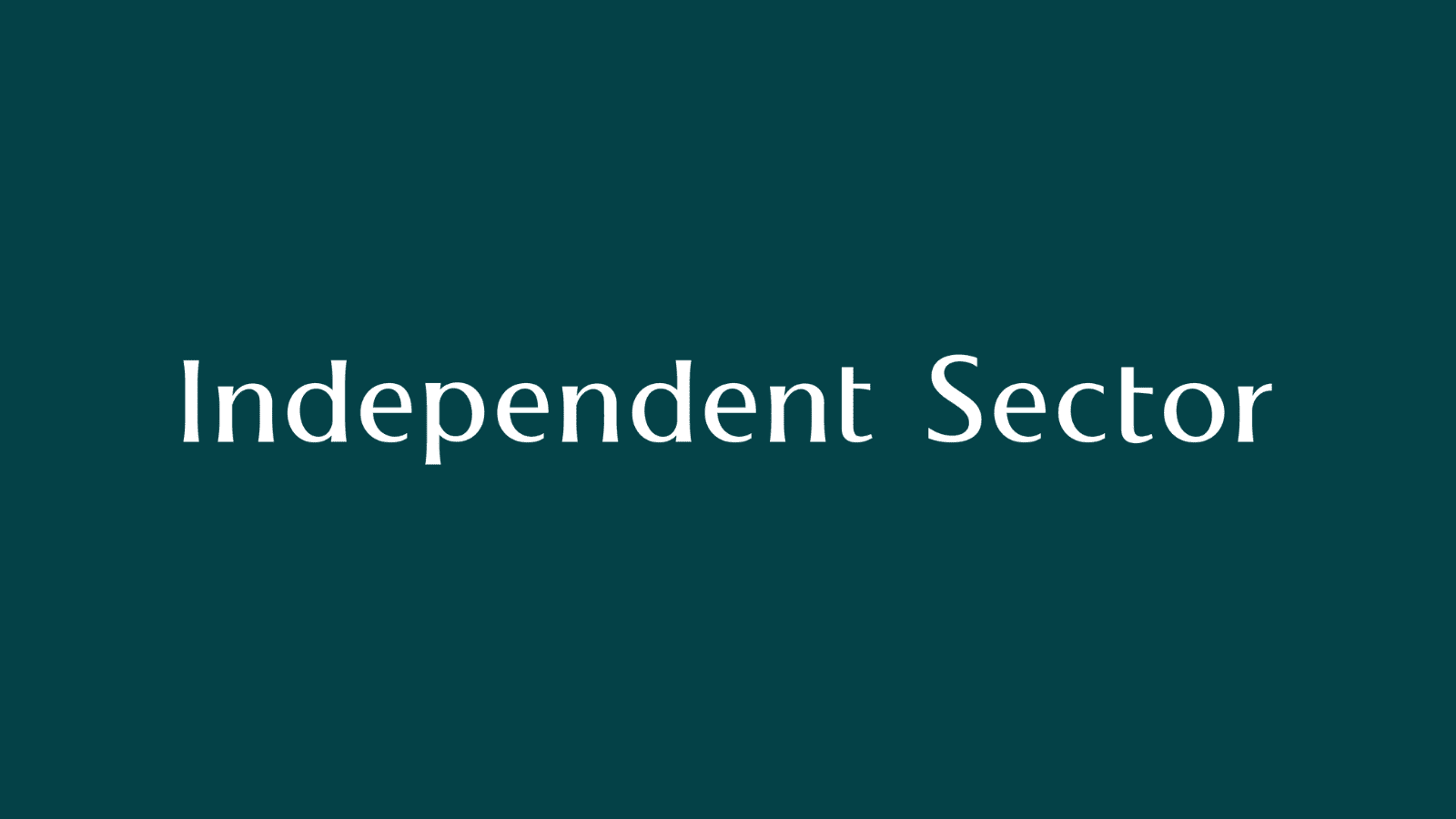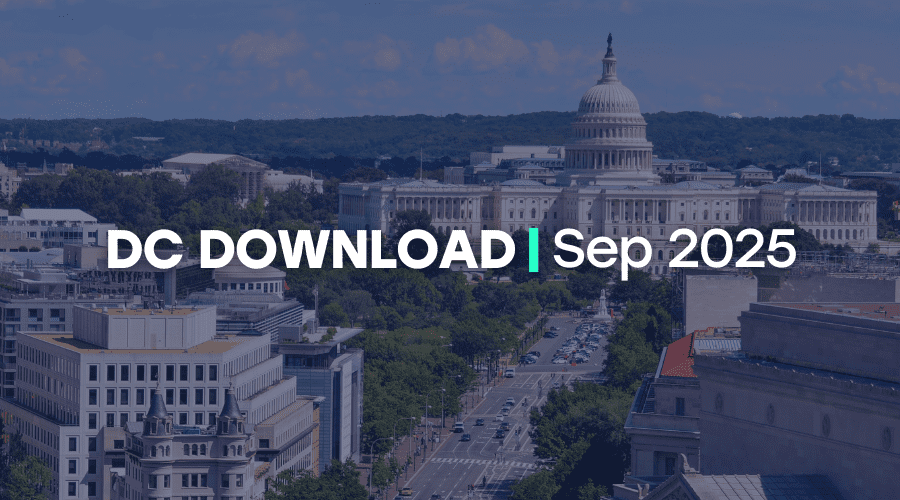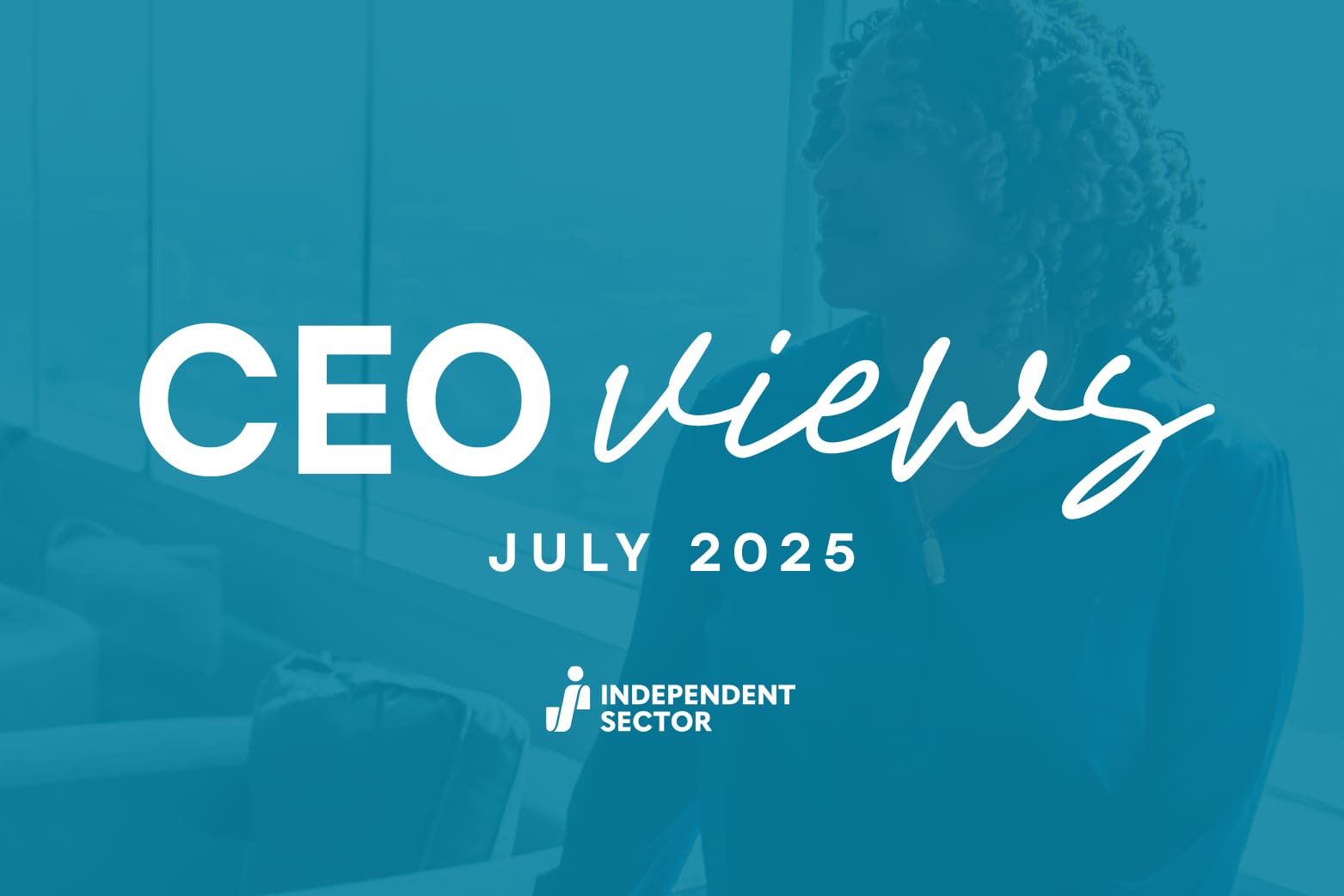What is the state of the charitable sector? What most troubles nonprofit and philanthropic organizations during these challenging times? And what role should Independent Sector play during this critical inflection point to address the concerns of our members, nonprofits, philanthropies, and the larger sector?
A group of 14 nonprofit and philanthropy leaders from across Greater Atlanta gathered in September to consider these questions — sharing candidly, listening deeply, and learning collectively. Their end goal? Drawing upon their lived experience and insights based on challenges confronting Atlanta area organizations — to inform Independent Sector actions as we continue to refine our strategy to achieve a more responsive, more equitable, and more resilient charitable sector.
The Greater Atlanta gathering, planned collaboratively with two new Independent Sector members — Hand, Heart + Soul Project and Southern Poverty Law Center — is the first of a series of meetings being considered in other regions. The Atlanta area gathering revealed a clear and urgent call for sector advancement grounded in lived experience and strategic aspiration, with four key themes emerging:
- Financial Stability: Chronic funding volatility is undermining long-term planning, staff retention, and infrastructure development. Attendees agreed on the need for multi-year, flexible funding models, equitable compensation, and investment in workforce development.
- Policy & Advocacy: A strong desire was expressed for inclusive, equity-centered advocacy. Organizations want tools, training, and access to decision-makers to influence policy that reflects community realities. Advocacy must be collaborative, community-informed, and rooted in justice.
- Collaboration: Leaders emphasized the need for trust-based partnerships that move beyond competition. Shared infrastructure, co-development models, and cross-sector labs were identified as key approaches to amplify impact and reduce duplication.
- Equity: Equity is not a silo — it’s the foundation. From funding practices to leadership models, participants urged Independent Sector to operationalize equity across all of the organization’s programs, partnerships, and policies.
What’s Next?
As Independent Sector plans additional regional meetings to collect feedback, Greater Atlanta nonprofit and philanthropy leaders proposed several actions for consideration including:
- Convening funders, nonprofits, and policymakers to co-create trust-based funding standards.
- Advocating for policy reforms that center equity and community voice.
- Developing tools and infrastructure to support nonprofit sustainability.
- Amplifying grassroots leadership and sector-wide practices that foster resilience and innovation.
During the meeting with Independent Sector, the group of Greater Atlanta nonprofits and philanthropies also agreed to continue to advise Independent Sector as we consider developing programmatic initiatives, such as:
- Legal Clarity for Nonprofits: Developing toolkits, education, and advocacy to simplify compliance and governance.
- Strategic Transitions Support: Providing coaching and frameworks to guide mergers, pivots, and leadership changes.
- Trust-Based Funding Advocacy: Conducting case studies and convenings to shift funder narratives.
- Equitable Resource Distribution: Mapping gaps and investing in intermediaries that serve underfunded communities.
- Shared Infrastructure & Co-Development: Developing innovation labs and communities of practice to foster collaboration.
The Voice of the Charitable Sector Matters
Independent Sector appreciates the support, resilience, and input of the Greater Atlanta nonprofit and philanthropic community. We look forward to hosting future gatherings with Greater Atlanta area organizations and other regional organizations as we work to build and refine our strategy for a healthy, resilient, and equitable charitable sector and nation where everyone thrives.
Dr. Rashid Mosley is Vice President of Programming Innovation and Impact at Independent Sector.



